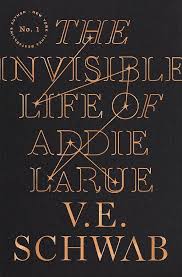Chapter XVI
byChapter XVI begins in August 2014, where New York City serves as the backdrop for Henry’s unexpected sense of peace. Despite the impending knowledge of his end, he finds himself at a rare point of tranquility, which can be traced to his deep connection with Addie. This connection has reshaped his understanding of life and mortality, altering his perceptions of what it means to truly live and to let go. Together, they decide to escape the chaotic energy of the city and immerse themselves in the serene embrace of upstate New York, where nature’s quiet beauty offers both respite and an opportunity for reflection. The simplicity of their surroundings contrasts sharply with the complicated emotions Henry faces. His choice not to visit his family for one final goodbye, though heart-wrenching, symbolizes his willingness to accept the inevitable and relinquish any remaining unresolved farewells. This decision, while painful, signifies his emotional readiness to confront his fate head-on and to surrender to the passage of time.
Their journey in the peaceful upstate countryside becomes a sanctuary for Henry, a time to indulge in the simplicity of life and, at the same time, confront his deepest fears and regrets. Henry and Addie spend their days engaging in small, almost mundane pleasures—buying fresh peaches from a local vendor, strolling through quiet state parks, and having picnics beneath the expansive, starry sky. These seemingly insignificant acts serve as a quiet meditation on the beauty of ordinary moments. For Henry, each of these actions becomes a precious memory, one he will carry with him as the end draws closer. At the same time, the simplicity of their experience allows him to reflect on the complexity of Addie’s own life—a life marked by centuries of trials, joy, and deep personal transformation. Through their conversations, Addie shares the wisdom gleaned from a life lived beyond ordinary limits, showing Henry that despite the suffering she has endured, her existence has held profound beauty. Her ability to find meaning in the face of immense hardships helps Henry realize that, although life is fleeting and filled with struggle, it is the joy we experience along the way that makes it worth living. The contradictions inherent in life—its messiness and its moments of grace—become central themes in their time together, highlighting the resilience of the human spirit.
Upon their return to the city, the weight of Henry’s reflections does not simply vanish with the change in location. Though they return to a semblance of normalcy, Henry’s mind remains heavy with contemplation, and his feelings of impending loss continue to shape his every interaction. An evening spent with his close friends Bea and Robbie at the Merchant bar, a familiar setting full of laughter and casual conversation, becomes a poignant moment in which Henry silently prepares to say his final goodbye. He plays the part of someone who is still very much alive, masking his true feelings with light-hearted banter, but his heart is elsewhere, already saying farewell. The pretense of going out of town—an excuse Henry crafts to avoid the formality of a proper goodbye—serves as a way for him to shield his friends from the weight of his departure. This act of subterfuge allows Henry to preserve the natural flow of his relationships with Bea and Robbie, to keep their connection intact for as long as possible without burdening them with the finality of his leave-taking. This subtle form of goodbye underscores Henry’s desire to protect those he loves from the pain of separation, while still coming to terms with the reality that it is inevitable.
Henry’s reflections throughout this chapter serve as a deep meditation on the complex and often contradictory nature of life and death. His journey with Addie, filled with moments of joy, fear, acceptance, and regret, reveals the depth of human emotion and the difficulty of coming to terms with the end of life. Set against the contrasting backdrops of the bustling New York City and the calm of the upstate countryside, their time together illustrates the ways in which life’s fleeting moments often hold more meaning than we realize. It highlights the complexity of our relationships—how love and loss intermingle and how our understanding of life is forever shaped by the decisions we make, especially in the face of death. Through their shared journey, Henry learns that life is not defined by how long we live but by how deeply we experience the moments we are given. Addie’s perspective, shaped by the trials and beauty of her long existence, helps Henry embrace the present, to live fully in each moment, and to find peace in the face of the inevitable end. The chapter concludes with the recognition that the beauty of life lies not in the years we accumulate, but in the richness of the moments we savor. As Henry prepares to face what lies ahead, he carries with him the realization that every fleeting moment, whether filled with joy or sorrow, is worth embracing.


